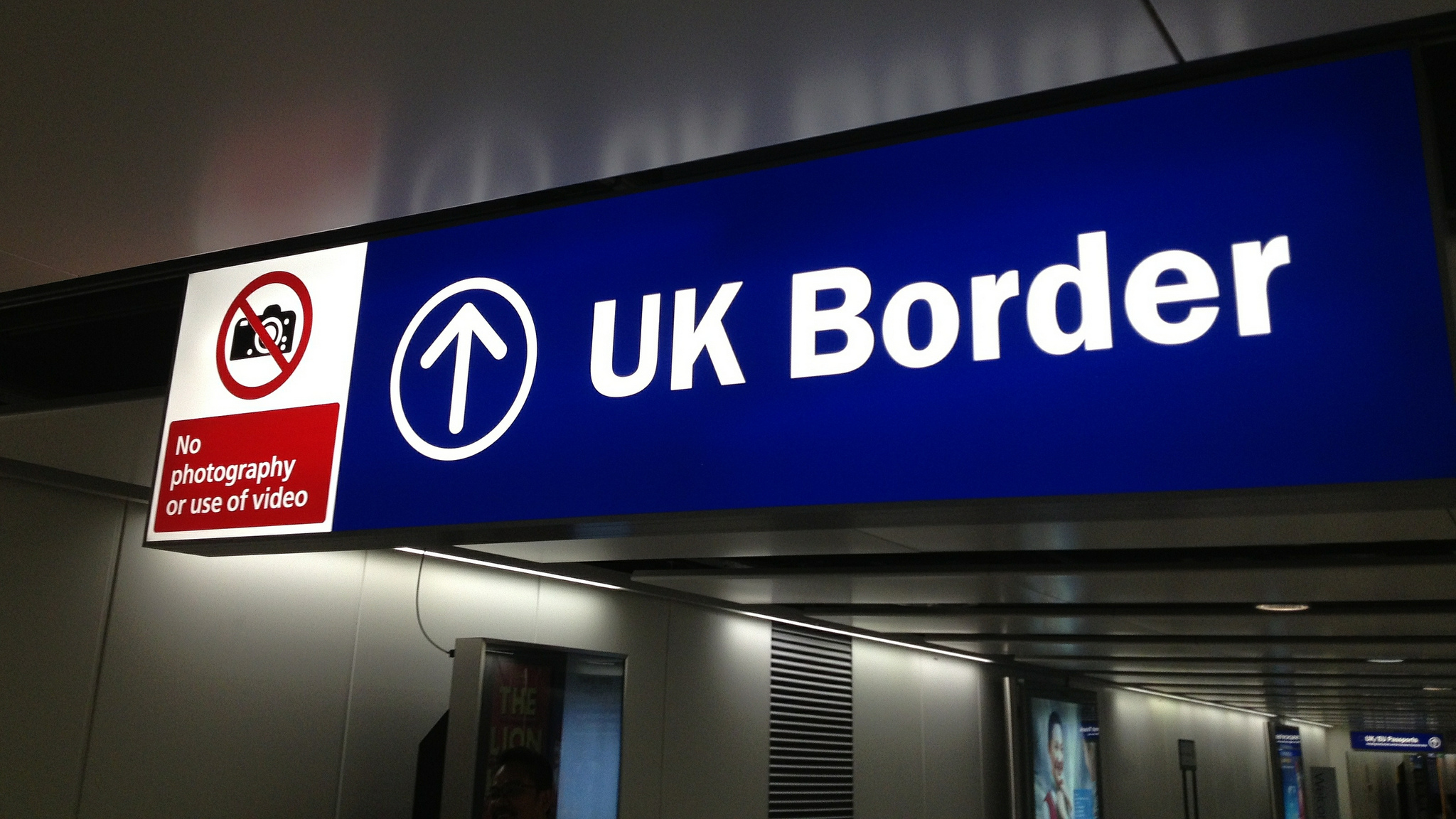
Every Monday, come 2 p.m. I’m usually ready in my seat in the Visitor’s Lock, unless there’s been a long wait to get fingerprinted and frisked. I then wait for Hormoz (not his real name) to get picked up from his cell on the wing and brought up. Weekday afternoons are normally pretty quiet here in the Lock, where family and friends sit on plastic chairs at plastic tables, both bolted to the floor, as they keep an eye on the door through which the detainees enter.
Two of the U.K.’s largest immigration detention centers are at Heathrow Airport. Catch the U3 bus from Terminal 1, get off at the Hongkong Chinese Restaurant, and keep walking. There they stand, side-by-side, just past the Sheraton.
Wherever you’re from, you’ll find fellow citizens here locked up in their cells much of the time. I’ve met fellow Americans on my visits. People who have no papers, the wrong papers, or were simply in the wrong place at the wrong time. Nobody inside the center I visit knows how long they will have to stay. They could be released or deported tomorrow. They could be made to wait a bit longer. Hormoz has been here for more than two years, as various branches of government, different embassies, and others bat his case for asylum back and forth.
What to do to pass the time, to feel at home, to find a way out? People tell stories. As a historian and author, I can relate to that. Their stories are always more dramatic than mine; clinging to the side of a goods train passing through the Channel Tunnel, crossing the Mediterranean in a dangerously-overloaded boat, fleeing the Rwandan genocide.
Like other volunteer visitors (I volunteer through a charitable organization that seeks to assist detainees but does not wish to be named), I am assigned one detainee at a time, whom I visit regularly until such time as they get deported, are granted leave to remain in the U.K., or are temporarily released on bail. I’ve been visiting Hormoz for over a year now, including a period during which he went on hunger strike.
Hormoz comes from Iran, and has been living and working in the U.K. longer than I have, up in Manchester. He married a local girl (“a Cheshire cat”) and had three children, now all grown up and doing amazing things. He wants to be allowed to stay here in the U.K., in his home.
By now his stories are familiar to me, but always unbelievable. Yes, they (the people in charge, who represent different agencies and jurisdictions) did say a decision would be reached soon. Yes, they did say that 18 months ago. Yes, you haven’t seen your daughters that you love in over a year, because when they came to visit they were not let in because they had the wrong form of ID. Hormoz can’t believe it. Neither can I. But the repetition of the story helps, somehow. We can’t believe it happened that way. But it did.
I’ve learned from my visits that telling stories is how you keep your self together if you have lived through extraordinary events, if your circumstances have somehow taken leave of your familiar world and set off in a totally new direction. Violence, and escaping from violence, is always extraordinary. You ask yourself: How can this be happening to me? Other people have had these other sorts of things happen to them, sure. But me? Never. At least not before. I had to leave home so quickly. War and genocide have a one-bag luggage policy. Pieces of me got left behind, or I dropped them. I needed both hands to cling to the train, the boat, the corner of the garage where I slept, the job I had cleaning offices in the city.
But that’s not good enough. Here in detention you must have your story straight: no gaps, no loose ends. Otherwise you must remain here, or be deported. Finding an order for the astounding facts and unlikely events takes time. It never quite seems like your real life, what you’ve been through, what you’re going through now, locked away with a view of the Sheraton, planes roaring off into the sky every 20 seconds. Why would you want it to be your life? That isn’t you.
The sharp, jagged edges, the fragments Hormoz and I turn round in our hands in these conversations—to us, they are truth. But to those who will decide, they are evidence of falsehood. It is only people with good stories who get out. Our rehearsal over, Hormoz is led away, to come up with another story. I will see him again next Monday. Who knows, maybe if he and I can keep this up long enough, we may manage, eventually, to polish the edges away, to make truth into the right kind of falsehood.




Send A Letter To the Editors